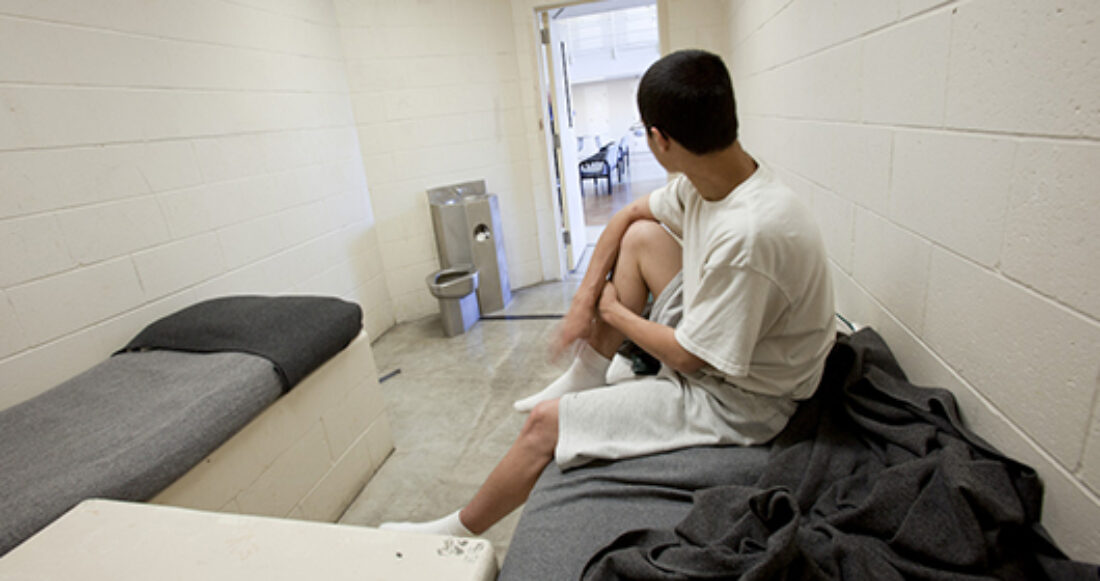Annie E. Casey Foundation CEO Calls for States to Close ‘Youth Prisons’

Richard Ross for Juvenile in Justice
In a TEDx talk recorded today, the president and CEO of the Annie E. Casey Foundation challenged states across the country to close all youth prisons, which he said undermine the development of young people who get into trouble with the law and expose them to grave dangers while failing to improve public safety.
Patrick McCarthy, the Casey Foundation leader, issued his call to governors and legislators in the TEDxPennsylvaniaAvenue session recorded at the Newseum in Washington, DC. TEDx is an independent version of the influential TED series of talks, which shares ideas from a broad spectrum — from science to business to global issues. The Foundation has worked to reform juvenile justice systems for 23 years through its Juvenile Detention Alternatives Initiative and is launching an effort to close youth prisons.
“I believe it’s long past time to close these inhumane, ineffective, wasteful factories of failure once and for all. Every one of them,” McCarthy said in his TEDx talk. “We need to admit that what we’re doing doesn’t work, and is making the problem worse while costing billions of dollars and ruining thousands of lives.”
McCarthy pledged the Foundation’s support to any state willing to join its commitment to close large secure juvenile facilities that resemble adult corrections facilities. He recalled early in his career when he was assigned to administer such a facility. His first visit revealed children in shackles, incessant noise, glaring lights, corrections officers with mace and isolation rooms for youth. He made a number of personnel and programmatic changes designed to improve conditions before finally concluding that facilities like his were inherently flawed.
A new report released by the Foundation today, Maltreatment of Youth in U.S. Juvenile Correctional Facilities validates his conclusion. The report documents instances of maltreatment in an increasing number of facilities since Casey published a signature report on the issue in 2011, No Place for Kids: The Case for Reducing Juvenile Incarceration. The 2011 report found that states relied heavily on confinement that exposed youth to widespread maltreatment, high recidivism rates and incarceration of children who pose no significant threats to public safety while ignoring the emergence of effective treatment models.
The new report documented systemic abuse to children in 29 states and substantial evidence of maltreatment in three additional states since 2000. The report cites widespread physical abuse and excessive use of force by juvenile corrections staff, including incidents described as “heinous.” It also finds “an epidemic” of sexual abuse, citing a 2013 Bureau of Justice Statistics survey on the topic finding that more than 10% of young people had been victimized sexually by staff or other youth.
The report also describes overreliance on isolation – or solitary confinement – and restraints, youth-on-youth violence and frequent violence against staff. On any given day, about 60,000 youth are in secure confinement, most of them for nonviolent offenses.
“The Maltreatment of Youth report shows that despite the best intentions of the people who run and work in them, youth prisons are inherently prone to abuse of the young people they are supposed to rehabilitate,” said Nate Balis, director of the Foundation’s Juvenile Justice Strategy Group. “Even for the small portion of kids who have committed serious crimes and require confinement, this outdated model needs to be replaced with strategies we know encourage youth development and growth.”
McCarthy said states can produce better outcomes for young people who get into trouble with the law, and they should commit to three things: First, decrease the number of youth going into juvenile systems by half; second, improve existing systems by expanding community-based and family-centered programs proven to help kids who have the most serious problems; and third, eliminate all publicly operated and contracted youth prisons and instead use small, treatment-intensive secure care programs.
He pledged support by bringing the Foundation’s nearly quarter century of juvenile justice reform expertise to states that commit to closing youth prisons.
“I make this offer to every state in the nation,” McCarthy said. “When you are ready, contact us and we’ll be there.”






